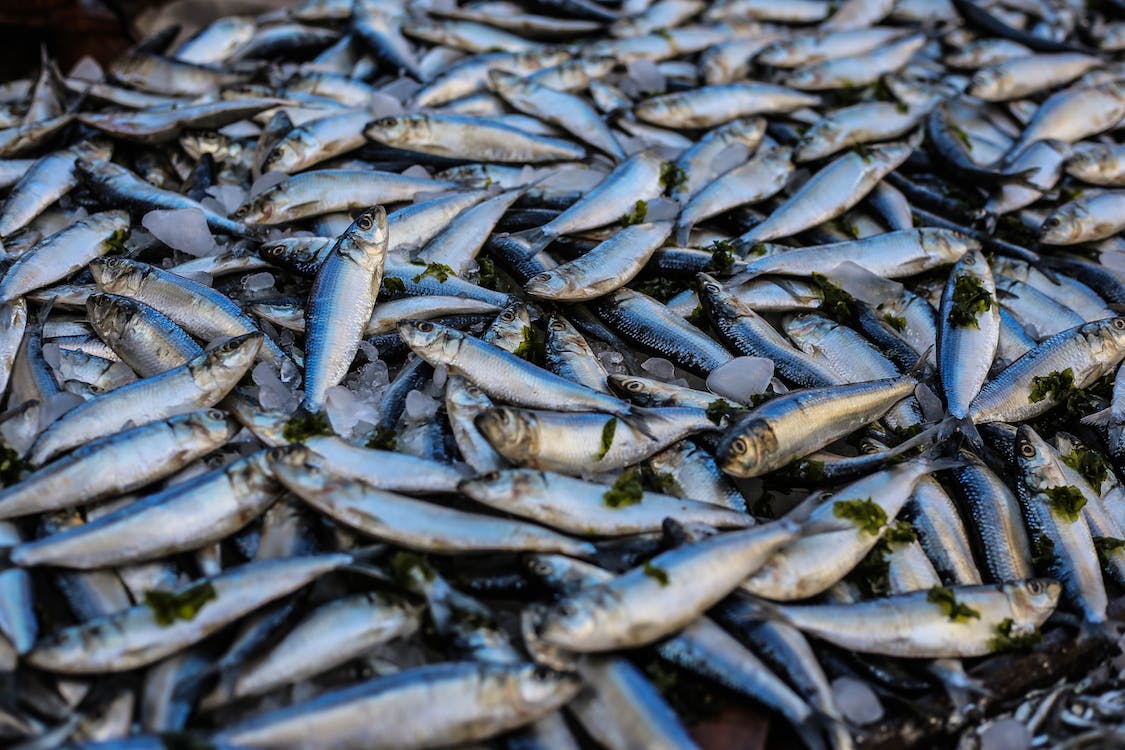The Science of Fishing: Understanding Fish Behavior for a Successful Catch
Share
Fishing is more than just a hobby; it's a fascinating field that involves understanding the behavior of fish and the mental aspects of angling. It's vital to comprehend the intricacies of fish behavior to have a successful catch. Anglers can enhance their fishing skills by understanding fishing psychology, which encompasses mental preparation, cognitive factors, and angler behavior. In this section, we'll explore these areas and help you become a more efficient and successful angler.

Key Takeaways
- Understanding fish behavior is crucial for a successful catch.
- Fishing psychology involves mental preparation, cognitive factors, and angler behavior.
- Learning about fish behavior patterns can enhance your angling skills.
- Developing a positive mindset can significantly impact your fishing performance.
- Understanding yourself and others can lead to a more enjoyable and productive fishing experience.
The Psychological Benefits of Fishing: Enhancing Emotional Well-being
Fishing is more than just a sport or a way to catch fish. It has numerous psychological benefits that can enhance your emotional well-being. In today’s fast-paced world, where stress levels are high, and people are often overwhelmed by daily challenges, fishing provides a much-needed escape from reality.
Fishing is a relaxing activity that allows you to connect with nature and disconnect from the daily stressors of life. It is a great way to clear your mind and recharge your batteries. When you’re out on the water, the sights, sounds, and smells of nature can be therapeutic, providing a sense of calm and tranquility that can be hard to find in other activities.
The Mental Health Benefits of Fishing
Fishing has been shown to have various mental health benefits. Here are some of the ways in which fishing can enhance your emotional well-being:
- Stress Reduction: Fishing has a calming effect on the mind and can help reduce stress levels. Being in nature and engaging in a relaxing activity can help reduce anxiety and promote feelings of well-being.
- Mindfulness: Fishing requires you to be present in the moment, focused on your surroundings and the task at hand. This level of mindfulness can be a great way to reduce stress and promote well-being.
- Improved Mood: Fishing can help boost your mood and provide a sense of accomplishment. When you catch a fish, it can provide a feeling of satisfaction and joy, which can help improve your overall mood.
- Reduced Depression: Studies have shown that spending time outdoors and engaging in activities like fishing can be an effective way to reduce symptoms of depression.

Embracing Nature for Better Emotional Well-being
Fishing is a great way to embrace nature and experience the outdoors. Spending time in natural environments has been linked with reduced stress and improved emotional well-being. The experience of being surrounded by trees, water, and wildlife can have a restorative effect on the mind and body.
Research has shown that spending time in nature can have a positive impact on mental health, including reduced stress, anxiety, and depression. It can also improve the immune system, lower blood pressure, and elevate mood.
Conclusion
As you can see, fishing offers many psychological benefits that can enhance your emotional well-being. From stress reduction to mindfulness to improved mood and reduced depression, fishing has a positive impact on mental health. Additionally, fishing provides an opportunity to connect with nature and experience the great outdoors, which can have additional health benefits. So, whether you’re an experienced angler or just starting, take advantage of the psychological benefits that fishing has to offer.
The Mindset in Fishing: Cultivating a Winning Attitude
When it comes to fishing, mental preparation is key to achieving success. Cultivating a winning attitude can help you stay focused, motivated, and resilient while out on the water. In this section, we'll explore the importance of mindset in fishing and provide you with some practical tips on how to develop a positive attitude before and during your trips.
Visualize Success
One of the most effective ways to enhance your mindset in fishing is through visualization. Before your trip, take a few moments to visualize yourself in different scenarios, successfully catching fish and feeling confident and satisfied. Visualizing success can offer a boost in self-confidence and help reduce any anxiety or negative thoughts that may impact your performance.
Stay Focused
Distractions can quickly derail your fishing experience, impacting your mood and attitude. Staying focused on your goals and objectives can help you maintain a winning attitude. Prepare a checklist of essential items to bring along with you, and ensure that you have all the equipment you need. This can help reduce any stress or anxiety and allow you to concentrate on what matters most.
Remain Positive
Fishing can be unpredictable, and it's essential to remain positive regardless of the outcome. Don't let a slow day on the water impact your attitude. Instead, focus on the enjoyable aspects of the experience, such as the scenery, the peacefulness, and the time to unwind. Maintaining a positive outlook can make all the difference in your overall mindset in fishing.
Set Realistic Goals
Setting realistic goals can help you manage your expectations and stay motivated throughout your trip. This can involve targeting specific types of fish or trying out new techniques. It's important to acknowledge that success can be measured in different ways, and not always by the number of fish you catch. By setting achievable goals, you can maintain a sense of accomplishment and satisfaction throughout your fishing journey.
Conclusion
The right mindset is crucial to fishing success. By visualizing success, staying focused, remaining positive, and setting achievable goals, you can cultivate a winning attitude that will help you perform at your best. By taking the time to develop a positive mindset before and during your trips, you'll be able to enjoy the many benefits of fishing and improve your overall fishing experience.
Psychological Strategies for Fishing Success: Maximizing Your Catch
Psychological strategies can significantly improve your chances of a successful catch. Understanding fish behavior patterns and adapting your techniques based on external factors are essential tactics to optimize your angling skills. Here are some practical tips and insights on how to use fishing performance psychology to maximize your catch:
"Successful anglers know that fishing is not just about catching fish; it's about outwitting them."
Understanding Fish Behavior Patterns
One of the critical factors in fishing success is understanding fish behavior patterns. Knowing how fish behave under different environmental conditions can help you determine where to find them and how to entice them to bite. For example, during warm weather, fish tend to be more active and feed more frequently in shallow water. In contrast, during colder months, they become less active and move to deeper waters.
When fishing in new waters, take the time to observe the behavior of the fish in their natural habitat. This way, you can understand their movement patterns and adapt your techniques accordingly. Use different types of bait and lures to see what works best, and remember to be patient.
Adapting Techniques Based on External Factors
External factors such as weather conditions, water temperature, and light intensity can significantly impact fish behavior. Suppose you're fishing on a cloudy day. In that case, fish tend to move closer to the surface to feed on insects, making topwater lures and bait more effective. A sunny day, on the other hand, requires different techniques as fish tend to move to deeper water to avoid direct sunlight.
Similarly, water temperature can affect fish behavior. Warm water promotes feeding, while icy water slows down fish activity. Understanding how these factors impact fish behavior can help you adapt your techniques accordingly, increasing your chances of success.
Maximizing Your Gear
Using the right gear is crucial for a successful catch. Different fishing techniques require specific gear, and using the appropriate equipment can help you get the most out of your fishing experience. For example, using a light line and small hooks can improve your chances of catching small fish, while heavy lines and larger hooks are suitable for larger fish.
Additionally, keeping your gear in good condition can positively impact your catch rate. Make sure to check your lines, hooks, and bait regularly, and replace them if necessary.
Staying Focused and Motivated
Staying focused and motivated is essential when fishing. Fishing requires patience, and it's not uncommon to spend hours waiting for a bite. However, it's essential to stay focused on the task at hand and remain motivated even when things seem slow.
Remember to take breaks, stay hydrated, and keep your energy levels up. Listening to music, sharing fishing stories with friends, or keeping a fishing journal can help keep your spirits up during long fishing trips.
By leveraging fishing performance psychology, you can maximize your chances of a successful catch. Understanding fish behavior patterns, adapting your techniques based on external factors, maximizing your gear, and staying focused and motivated are crucial aspects of fishing success. So, get out there and apply these psychological strategies to optimize your angling skills!
Cognitive Factors in Fishing: Unlocking Your Analytical Skills
Fishing is not just about throwing a baited hook and waiting for a fish to bite. It requires careful observation, problem-solving, decision-making, and adaptability. All of these cognitive skills are crucial in becoming a successful angler. In this section, we'll explore the mental aspects of fishing and how you can develop and enhance your analytical skills to improve your angling performance.
One essential cognitive factor in fishing is observation. It involves paying attention to environmental cues, such as water temperature, weather conditions, and fish behavior. By observing and analyzing these factors, you can adapt your angling strategies accordingly and increase your chances of a catch. For example, noticing that fish are feeding at a particular time of day can help you determine the best time to cast your line.
Another vital cognitive factor is problem-solving. Fishing often requires you to solve problems on the spot, such as untangling a line or fixing a broken rod. Developing problem-solving skills can lead to better outcomes and greater fishing success. Additionally, problem-solving skills can be transferred to other areas of life, enhancing your overall problem-solving abilities.
Decision-making is also critical in fishing. For example, deciding whether to use live bait or lures, or determining where to position your line, can have a significant impact on your catch. Making informed decisions based on observation and analysis can lead to a more successful day on the water.
Finally, adaptability is key in fishing. Environmental factors, such as changes in weather or water conditions, can require you to adjust your strategies quickly. Developing adaptability skills can help you remain focused, motivated, and resilient, even in challenging fishing situations.
The Benefits of Enhancing Your Analytical Skills for Fishing
Improving your cognitive skills in fishing doesn't just lead to better catches. It can also provide numerous personal benefits, such as increased confidence, problem-solving abilities, and decision-making skills. Additionally, developing these skills can provide a sense of accomplishment and satisfaction, leading to enhanced emotional well-being.
"Fishing provides an excellent opportunity to exercise your cognitive skills, including observation, problem-solving, decision-making, and adaptability."
Table: Cognitive Factors in Fishing
| Cognitive Skill | Description | Benefits |
|---|---|---|
| Observation | Paying attention to environmental cues | Adapting strategies for greater fishing success |
| Problem-solving | Solving problems on the spot | Developing better problem-solving abilities for life |
| Decision-making | Making informed decisions based on analysis | Improving decision-making skills overall |
| Adaptability | Adjusting strategies quickly based on changing conditions | Remain focused, motivated, and resilient |
Developing your analytical skills in fishing can lead to a more fulfilling and successful experience on the water. By paying attention to environmental cues, solving problems, making informed decisions, and remaining adaptable, you can enhance your cognitive abilities and catch more fish.
Exploring Angler Behavior: Understanding Yourself and Others
Angler behavior is an intriguing aspect of the psychology of fishing. As an angler, understanding yourself and others can lead to a more productive and enjoyable fishing experience.
“Understanding the behaviors of one's fishing partner or those fishing nearby can make fishing more enjoyable and productive,” said Dr. Alex K. Gearhardt, an Associate Professor of Psychology at the University of Michigan.
The following table outlines different types of angler behavior and their characteristics:
| Type of Angler Behavior | Characteristics |
|---|---|
| The Competitor | Driven by the desire to catch the biggest fish or the most fish |
| The Relaxer | Fishes for relaxation and to enjoy the outdoor experience |
| The Traditionalist | Uses old-fashioned techniques and equipment to catch fish |
| The Explorer | Tries new techniques, locations, and equipment to catch fish |
Understanding different personality types and motivations can also contribute to a better fishing experience. For example, a competitive angler may benefit from fishing in less crowded areas, while a traditionalist may prefer quiet, peaceful areas.
Dr. Gearhardt suggests that “by being aware of our behavior and the behavior of others, we can be more conscious of how we interact with others while fishing, leading to better experiences for all involved.”
Conclusion
Understanding angler behavior is an essential part of fishing psychology that can significantly impact your fishing experience. By recognizing different personality types and motivations, you can cultivate a more productive and enjoyable fishing experience for yourself and those around you.

The Impact of Environmental Factors on Fish Behavior
The environment plays a critical role in fish behavior and ultimately impacts your chances of a successful catch. Understanding these dynamics will help you adjust your fishing strategies accordingly.
Weather Conditions
Weather conditions have a significant impact on fish behavior. Changes in barometric pressure, wind, and temperature can influence their feeding patterns, movement, and habitat preferences. For instance, fish are likely to be more active and feed more aggressively just before a storm. On the other hand, they may become inactive or seek shelter during a storm. As a result, you need to adjust your techniques to suit the prevailing weather conditions to optimize your chances of a successful catch.
Water Temperature
Water temperature is another environmental factor that affects fish behavior. Different fish species have different temperature preferences, and as a result, you are likely to find them in specific areas of the water. For instance, warm-water species such as bass or catfish will typically be found in shallow waters, while cold-water species such as trout will be found in deeper, cooler waters. Understanding these preferences is essential in optimizing your catch.
Habitat
The habitat is another key influencer of fish behavior. Fish prefer different types of habitats, whether it be open water, weeds, or rocks. Understanding the type of habitat favored by your target fish species can help you locate them quickly and increase your chances of a successful catch. Additionally, you should also aim to avoid disturbing the habitat unnecessarily to avoid disrupting the natural behavior of the fish, which can decrease your chances of a catch significantly.
The Bottom Line
The impact of environmental factors on fish behavior cannot be overstated. Understanding how weather conditions, water temperature, and habitat preferences influence the behavior of different fish species can help you adjust your techniques accordingly, which ultimately leads to a more successful catch.
The Role of Patience and Persistence in Fishing
Fishing is a sport that requires a lot of patience and persistence. While some anglers may be lucky and catch a fish on their first cast, most know that it takes time and effort to get a successful catch. However, patience and persistence are not just about waiting for a fish to bite. They also play a crucial role in developing the right mindset for fishing success.
When it comes to fishing psychology, patience is essential. It helps anglers manage their expectations and embrace the journey rather than just focusing on the end result. By accepting that fishing is a process, anglers can enjoy the peacefulness of being out on the water and be more present in the moment. In turn, this can lead to a more positive attitude and a better overall fishing experience.
Persistence is another key aspect of fishing success. Anglers must be willing to adapt and change their techniques depending on the conditions they face. This requires patience and a willingness to keep trying, even when things seem challenging. By persisting and trying new approaches, anglers can increase their chances of catching fish and become better anglers overall.
The mental aspects of fishing, including patience and persistence, also tie into understanding angler behavior. By observing other anglers and learning from their actions, anglers can gain insights into what works and what doesn't. They can also develop a better understanding of their own behavior and how it impacts their fishing success.
In conclusion, developing patience and persistence is crucial for fishing success and enhancing the overall fishing experience. By embracing the process, adapting to changing conditions, and observing angler behavior, anglers can improve their mindset and become better anglers. So, the next time you head out on the water, remember the importance of patience and persistence in fishing.
Conclusion
In conclusion, fishing psychology is a fascinating field that can greatly enhance your angling skills and overall enjoyment of the sport. By understanding fish behavior, cultivating the right mindset, utilizing psychological strategies, and exploring various cognitive factors, you can become a more successful angler. Additionally, fishing offers a myriad of benefits to your psychological well-being, from reducing stress to promoting relaxation and mindfulness. Developing an understanding of angler behavior and the impact of environmental factors further contributes to your fishing success. Remember, cultivating patience and persistence is essential to both your angling success and personal growth. So, get out there, embrace the psychology of fishing, and enjoy the many psychological benefits that this rewarding activity offers!
FAQ
What is fishing psychology?
Fishing psychology is the study of fish behavior and the mental aspects of fishing. It involves understanding how fish behave in different situations and how our own mindset can impact our fishing performance.
Why is understanding fish behavior important?
Understanding fish behavior is crucial for a successful catch. By knowing how fish react to certain conditions and stimuli, anglers can adapt their techniques and increase their chances of hooking a fish.
How does fishing contribute to emotional well-being?
Fishing has numerous psychological benefits that enhance emotional well-being. It can reduce stress, promote relaxation, and provide a sense of mindfulness. Being out in nature and engaging in an activity you enjoy can have a positive impact on your mental state.
How can I cultivate a winning attitude in fishing?
Cultivating a winning attitude in fishing involves mental preparation and developing a positive mindset. Techniques such as staying focused, motivated, and resilient can greatly improve your fishing performance.
What are some psychological strategies for fishing success?
To maximize your fishing success, you can employ psychological strategies such as understanding fish behavior patterns, adapting your techniques based on external factors, and utilizing fishing performance psychology to optimize your chances of a successful catch.
How can I improve my analytical skills in fishing?
Fishing requires both physical abilities and cognitive skills. To enhance your analytical skills, you can focus on observation, problem-solving, decision-making, and adaptability. Developing these mental aspects of fishing will make you a more proficient angler.
What is angler behavior, and why is it important to understand?
Angler behavior refers to the different types of behavior exhibited by anglers, including personality traits, motivations, and fishing styles. Understanding angler behavior can lead to a more enjoyable and productive fishing experience, as it influences interactions on the water.
How do environmental factors impact fish behavior?
Various environmental factors, such as weather conditions, water temperature, and habitat, can significantly influence fish behavior. Understanding these dynamics helps anglers adjust their fishing strategies accordingly for better results.
Why is patience and persistence important in fishing?
Patience and persistence are crucial virtues in fishing. Managing expectations, overcoming challenges, and staying dedicated to the pursuit of a catch are vital aspects of angling. They tie into angler behavior and can greatly contribute to fishing success.
